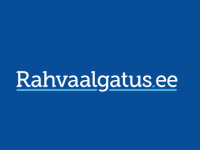The open government data on COVID-19 infections were used to make a "Corona map". Data from the corona map is downloadable in csv and xls format.
Country: Estonia
The Government of Estonia has made available open data on COVID-19 infections on its national open data portal, including positive and negative test results and a summary. Data are disaggregated by age intervals and county level. Data is accesssible via a Creative Commons 3.0 licence, XSLS format, with daily updates.
On 21 April 2020, the Estonian government launched MASC, a digital solution for monitoring PPE stock and demand in hospitals and other public sector institutions. The solution launched in Estonia is a pilot version created during the hackathon, The Global Hack, and is today used by over 300 institutions, including all hospitals, in Estonia.
The solution simplifies the collection of data on PPE inventories, needs and prognosis. The system allows for user-friendly collection of data throughout a…
An increased workload for family doctors and the health sector as a whole means that getting in touch with a doctor may be more difficult; those in need of filing an official sick note (Haigusleht) with employers can do so via the Patient Portal.
Entries into the patients' portal will be forwarded to the Health Insurance Fund and the individual's employer and family doctor; the record is also automatically opened and the individual will be contacted by the family doctors' center within a week to…
Estonia had a hackathon, and from this numerous services have been built. For example we now have a chatbot Suve (https://news.err.ee/1067675/government-launches-chatbot-to-answer-coronavirus-crisis-queries), a corona test / symptom tracker (https://koroonatest.ee/), and a dashboard (http://koroonakaart.ee/en)
In Estonia, the government policy development lab Accelerate Estonia has partnered with Garage48 to run a 6 hour 'hackathon' which collected 96 ideas, with over 860 people in the official slack. They now have 28 teams working together on projects as a result.
Estonia is highly dependent on its information systems. Therefore, the concept of data embassies was developed: hosting server locations outside of physical space of Estonia that are legally under the Estonian jurisdiction. This would allow to create copies of key registries that could be used in case of a major availability incident in the country.
The Republic of Estonia is the first country to offer e-Residency— a transnational digital identity available to everyone in the world interested in managing a location-independent business. E-Residency enables secure and convenient digital services that facilitate credibility and trust online.
The platform, Rahvaalgatus.ee is digital infrastructure that enforces the new civic right to address the Parliament of Estonia with collective proposals by citizens. The open-source platform enables to first discuss upon a relevant topic, then co-create the proposal, gather digital signatures to it, send the proposal to the parliament, and get updates on the process in the parliament.


